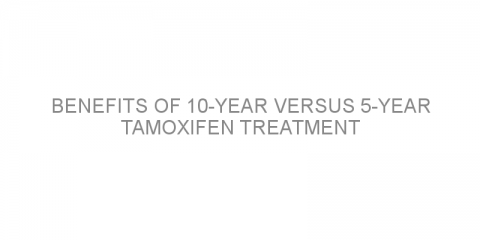In a nutshell This review presents the recommendations of The American Cancer Society and the US Multi-Society Task Force on the use of colonoscopy for the follow up of patients with resected colorectal cancer (CRC). Some background Patients who undergo surgery for CRC with curative-intent (complete removal of the cancer) are candidates for...
Read MoreCurrent stage?-Stage III Posts on Medivizor
Evaluating the efficacy of intraoperative radiotherapy for patients with locally advanced and recurrent colorectal cancer
In a nutshell The present review evaluates the results and complications of intra-operative radiotherapy (IORT) for the treatment of patients with locally advanced (stage III) and recurrent colorectal cancer (CRC). Some background Locally advanced CRC means that the cancer has spread beyond (invaded) the lining of the large intestine...
Read MoreTowards guidelines to prevent colorectal cancer recurrence
This article presents results of recent studies concerning the interplay between the body's chemistry and behavioral factors that influence colorectal cancer (CRC) recurrence. Recent advances in CRC treatment have produced new and promising biological treatments. However, tumors sometimes have unique features that render many of these therapies...
Read MoreWell-timed Docetaxel (Taxotere) therapy offers the best results in treating hormone-refractory prostate cancer
In a nutshell This article reports the results of recent studies involving the drug Docetaxel (Taxotere). The drug did not improve overall survival when added to androgen-deprivation therapy. Smaller doses given in shorter treatment cycles were found to be easier to tolerate and more effective. Some background Prostate cancer grows in...
Read MoreSugar-rich foods and colorectal cancer recurrence
In a nutshell This study investigated whether diets rich in carbohydrates influence recurrence rates in patients treated for colorectal cancer. The main finding was that a higher glycemic (sugar) load and carbohydrate intake were associated with a greater risk of cancer recurrence. Some background Dietary factors, as well as body...
Read MoreBenefits of postoperative chemotherapy vary according to breast cancer type
In a nutshell This study questioned the benefit of adding chemotherapy to postoperative hormonal treatment in the case of lobular breast cancer. Their findings were that chemotherapy seems to offer no additional beneficial effects in women with lobular breast cancer receiving hormonal therapy. Some background There are two main types of breast...
Read MoreBenefits of 10-year versus 5-year Tamoxifen treatment
In a nutshell Tamoxifen treatment is given to many breast cancer patients after surgery to prevent recurrences and improve survival. It is usually given for a maximum of 5 years. This study determined that longer treatments offer further survival benefit. Some background Tamoxifen is a drug used against breast cancers which produce...
Read MoreEvaluating the addition of Capecitabine to postoperative standard chemotherapy
In a nutshell This article presents summarized data from two clinical trials. The trials evaluated the addition of Capecitabine to standard postoperative chemotherapy for patients with high risk early breast cancer. Some background Capecitabine is a chemotherapy drug that is taken orally and slows the growth of tumors. It can be...
Read MoreCancer- and Cancer Treatment–Associated Cognitive Change: An Update on the State of the Science
This article summarizes recent findings regarding cognitive problems and decline in patients previously treated with chemotherapy. It gives a comprehensive overview of results from neuropsychological, imaging and animal studies. It also proposes investigating post-chemotherapy mental decline in the context of the normal aging process. In long...
Read MoreHigh intensity focused ultrasound: a treatment option for men with recurrent, localized prostate cancer previously treated with radiation
In a nutshell This paper evaluated the use of High Intensity Focused Ultrasound (HIFU) to treat recurrent prostate cancers that are confined to the prostate gland (T1 and T2) and that have previously been treated with External Beam Radiation Therapy (EBRT). HIFU treatment has led to minimal PSA levels, and negative biopsies in about 58% of the...
Read MoreA new potential drug (mTOR inhibitor) for the treatment of metastatic prostate cancer
mTOR – which stands for mammalian target of rapamycin – is a protein that regulates vital cell growth processes. mTOR receives external signals from growth factors, hormones, and proteins. It then gives the 'on' or 'off' signals for the cell to grow and divide, or nourish itself. If a cell's mTOR is not properly regulating...
Read MoreChemotherapy Treatments For Triple-Negative Breast Cancer
This paper reviews chemotherapy options for triple-negative breast cancers. Breast cancer cells express 3 main receptors that can be targeted with therapy: Estrogen receptors (ER), Progesterone receptors (PR) and HER2. Triple-negative breast cancers (TNBCs) do not express these 3 receptors and make up approximately 15% of breast cancers. Such tumors do...
Read More














